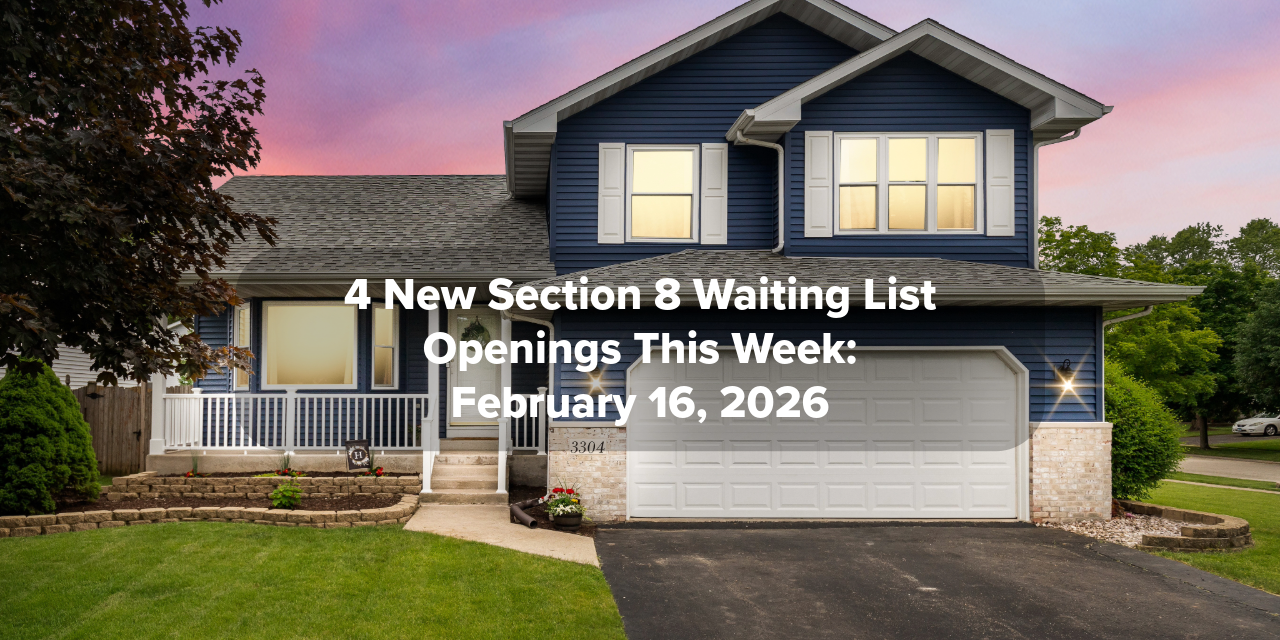What Happens After a Public Housing Interview?
/Public housing is a type of housing option subsidized by the government. The main goal of public housing is to provide affordable, decent, and safe rental housing for eligible low-income families, the elderly, and persons with disabilities.
The government provides public housing at reduced rental rates, thereby ensuring shelter for those who would otherwise struggle to afford it. These housing programs are managed at various levels of government – local, state, or national – depending on the area.
Obtaining public housing requires a thorough vetting process, including an interview. This guide will help you understand what usually happens after a public housing interview.
What Happens After Your Public Housing Interview?
A public housing interview is a key part of the application process for government-subsidized housing. The housing authority conducts a thorough assessment of the applicant's eligibility for public housing. This helps ensure resources are allocated to those who need them the most.
During the interview, applicants are asked to provide detailed information about their income, family size, and other personal circumstances. Applicants need to be prepared, truthful, and thorough during the interview to avoid potential complications or delays in their application.
The interview starts with a review of the application and verification of the applicant's identity and income using documents such as IDs and pay stubs. The applicant then provides details about their family composition and may undergo a criminal background check. The interviewer gauges specific housing needs and compares the applicant's income to the area's median income to determine eligibility.
But what happens after the public housing interview is completed? The specific steps that typically follow may vary depending on the housing authority's policies and procedures. However, here is a general idea of the steps that could occur.
Application Review
Once the interview concludes, the housing authority begins a comprehensive review of your application. This review process involves cross-examining the information and documentation provided during the interview against the eligibility criteria for public housing.
The criteria commonly encompass aspects such as income thresholds, family size, and specific requirements for elderly or disabled applicants.
Verification of Documents
The housing authority might also reach out to the references mentioned in your application. The aim is to substantiate the details you supplied during the interview, including but not limited to your income, family composition, and any other information that could affect your eligibility. This verification step maintains the integrity of the system, confirming that all successful applicants genuinely require the assistance that public housing offers.
Background Check
A background check is conducted on all adult applicants. This isn't to discriminate, but rather to assess any criminal history or previous housing-related issues that might affect the applicant's ability to adhere to housing regulations or maintain a safe and respectful living environment. Instances such as a history of damaging property, or causing serious disruptions to neighbors, could potentially influence the decision regarding public housing eligibility.
Waiting List Placement
If you meet the eligibility requirements and there's no availability, you'll be placed on a waiting list. This list is the queue for available public housing units. The duration you spend on this public housing waiting list is influenced by housing demand in your area, which can fluctuate based on various factors, such as population growth and economic conditions.
Notification of Acceptance or Denial
The housing authority will inform you in writing about the status of your application. If you've been accepted, the notification will include details about what you should do next.
Conversely, if your application is denied, the letter will state the reasons for this decision, providing insights into what aspects of your application failed to meet the requirements.
If you're denied public housing, you typically can reapply, depending on why you were denied. For instance, if your application was denied due to incorrect or incomplete information, you should provide all necessary details correctly during your reapplication. If your application was denied because your income was too high, you will only be eligible to reapply if your financial circumstances change.
In some cases, if you were denied due to a criminal record or past eviction, the housing authority might require you to demonstrate a period of good behavior before allowing you to reapply. The specifics will depend on the policies of the individual housing authority, so it's important to communicate with them to fully understand your options.
Reapplying does not guarantee approval, so it's important to address the reasons for the initial denial to improve your chances of success during your reapplication.
What Happens After a Successful Public Housing Interview?
Unit Assignment
When a unit comes available, you'll be notified of your unit assignment. This is the specific housing unit that's been allocated to you. At this stage, you might need to attend an additional briefing or orientation.
The orientation usually covers the lease terms, rules, regulations, and anything else pertinent to living in your assigned public housing unit. It provides a chance for you to learn about your new community and ask any questions you might have.
Lease Signing
After a unit has been assigned to you, you're required to sign the lease agreement, a legally binding document that outlines the terms and conditions of your tenancy.
Depending on the housing authority's rules, you might need to make an upfront payment. This could include a security deposit and/or the first month's rent. This payment secures your tenancy and is generally a requirement before moving in.
If you are struggling to pay rent, there are programs and resources available to assist you.
Move In
Once the paperwork is finalized and payments are made, you can move in. You'll receive the keys to your unit and can begin the process of settling in. It's a good idea to document the condition of the unit when you move in. Taking pictures can be helpful in case there are any disputes about damages when you move out.
Based on your lease agreement, you might be responsible for setting up utilities, such as electricity, gas, and water in your name. If so, you'll need to contact the relevant utility companies to arrange this.
Annual Recertification
Staying in public housing isn't a one-time process. To ensure ongoing eligibility, residents are normally required to participate in an annual recertification process. This process involves providing updated information about your income, household composition, and any other changes that could influence your eligibility. It's essential to keep up with this process, as failure to do so could lead to the loss of your housing benefits.
Know What Happens After a Public Housing Interview
While what happens after a public housing interview may seem complicated, understanding each step can alleviate stress and confusion. The end goal – a safe and affordable place to call home – is worth the effort.
Remember, it's vital to communicate with your housing authority, ask questions when unsure, and be prepared, honest, and proactive throughout the process. Public housing isn't merely about providing a roof over one's head; it's a stepping stone toward a more stable and secure life.
Check out our public housing waiting lists to find openings in your area and begin the application process today.











